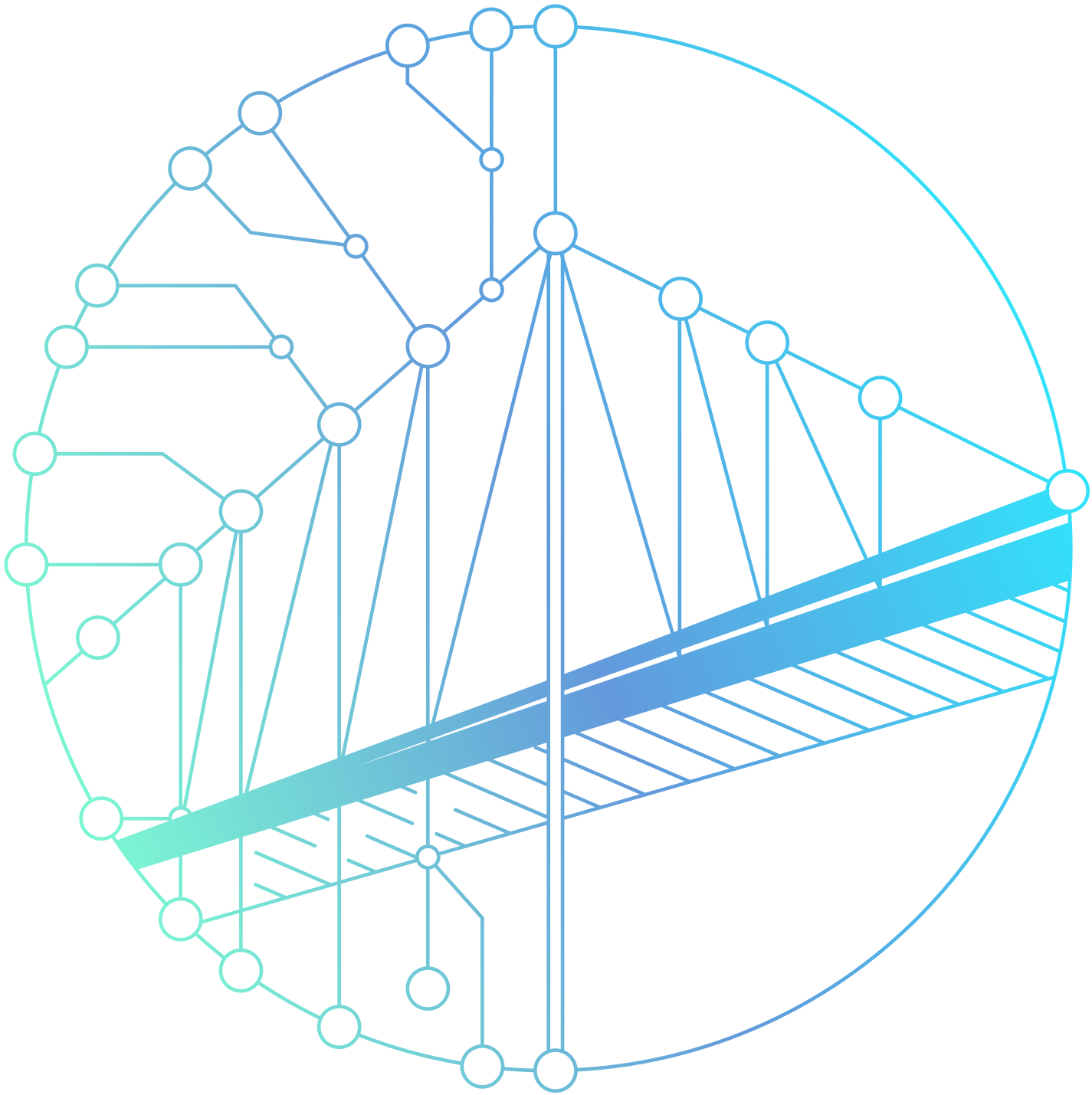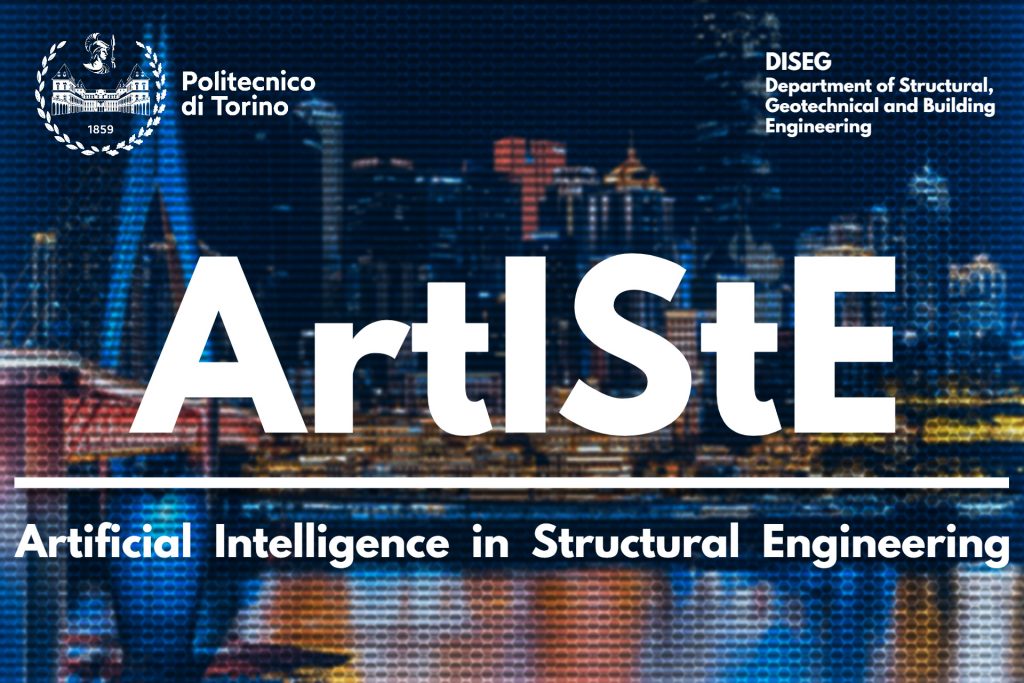ArtIStE research group – Artificial Intelligence in Structural Engineering
Artificial Intelligence (AI) is a wide-ranging branch of computer science concerned with building smart tools capable of performing tasks that typically require human intelligence. Nowadays, as human beings, we use AI in our daily lives, even though we may not always be aware of it. For instance when asking Siri or Alexa to look something up for us, chatting with chatbots like ChatGPT and other alternatives to address our inquiries, or searching things on Google, and even something as simple as the pesky advertisements we get bombarded by online are all related somehow to AI. Although the increase in knowledge has shown in numerous branches in recent decades, Structural Engineering was born much more before the development of many modern sciences. Nevertheless, modern structural engineering as a discipline was systematically formalized over two centuries ago and used the first mathematical and physics applications to analyze and predict structures’ behavior under given loading conditions, providing a tool for designing them in a rational and cost-effective way. The development of specific analysis and computational methods for a wide range of structural problems permitted over the last two hundred years to revolutionize the world of the construction industry, tackling important challenges likewise designing tall buildings, long-span bridges, towers, and generally speaking, our cities and infrastructural systems. What the community currently perceives as a “mature” technology is the result of the advancements and in-depth development of designing procedures and, on the other side, the adoption of industrialized structural materials that permit ensuring mechanical parameters and in-service performance with statistical-based threshold reliability. The long history and the development of well-established analysis methods for structural design have bestowed on the civil engineering field the idea of being a hardly permeable sector to new approaches different from those well-established traditional physics-mathematical formulations. However, it is worth noting that over the decades, also approximated techniques have been established for tackling complex problems such as ones involving non-linearities issues.
Within this context, AI-based solutions can often provide valuable alternatives nowadays for efficiently solving new demanding problems and challenges in the Structural Engineering field. Therefore, the ArtIStE Research Group has been found by Prof. G.C. Marano to explore these new possibilities, in the direction of developing applications for future AI-based smart cities and smart infrastructures. Our research mission includes, but is not limited to, computational intelligence and soft computing methods, such as evolutionary and metaheuristic algorithms for coping structural optimization tasks, including also neural networks, fuzzy systems, expert feed-forward informed systems, and so on. Machine Learning (ML) methods such as classification, regression, and reinforcement learning, provide the possibility to develop new unseen data-driven approaches.
Therefore, our mission is setting a dissemination channel of our scientific research activities, providing to both researchers, professionals, students, or even simply enthusiasts, an overview of the most recent advances of AI applied in Structural Engineering applications, and as well as promoting related events and keynote speech. This website can be also the occasion for enstablishing new important and international collaborations between different colleagues and institutions worldwide.
FAIR – Future Artificial Intelligence Research
The FAIR – Future Artificial Intelligence Research Foundation is a non-profit foundation whose main purpose is to implement the interventions financed under the National Recovery and Resilience Plan (NRRP), and any subsequent funding, in the artificial intelligence field.
FAIR is an extended partnership based on the Hub Spoke model: the Foundation is the hub, the implementing body and contact point of the Partnership (thematic area 1 – Artificial Intelligence: Foundational Aspects, foreseen by the MUR Call no. 341 of 15/03/2022), and carries out its activity in collaboration with the Spokes, that are the entities involved in the implementation of the research program.
The FAIR foundation includes 4 national research institutions (CNR, Fondazione Bruno Kessler, INFN and IIT), 12 Universities (Politecnico di Milano, Politecnico di Torino, Sapienza, Scuola Normale Superiore, Università Campus Biomedico di Roma, Università di Bologna, Università di Pisa, Università di Trento, Università di Bari, Università della Calabria, Università di Catania, Università di Napoli “Federico II”) and 5 companies (Bracco, Expert.ai, Intesa Sanpaolo, Leonardo, Lutech).
FAIR intends to contribute significantly to the objectives set forth in the Italian Strategic Programme on Artificial Intelligence:
- Advance frontier research in AI
- Reduce Artificial Intelligence research fragmentation, foster critical mass and inclusion
- Create human-centered, robust, trustworthy and sustainable AI
- Foster AI-based innovation and development of AI technology
- Create, retain and attract AI talent in Italy
- Ensuring the long-term sustainability of the FAIR Hub
Following the Italian National Strategy in Artificial Intelligence, the FAIR project combines an inclusive and interdisciplinary approach with the valorization of the excellence widespread in the Italian scientific community in Artificial Intelligence.
Spoke 7 – Edge-exascale AI
Politecnico di Torino participates to PNRR FAIR project as Spoke 7 – Edge-exascale AI.
Prof. G.C. Marano and part of his ArtIStE research team contributes to the working package WP 7.6 (PIs: Prof. Antonio Vetrò, Prof. Emilio Paolucci) with Task 7.6.2 GeoAI (Task leader: Francesca Matrone PoliTo)
Barbara Caputo, FAIR’s Spoke 7 coordinator, is Full Professor at the Politecnico di Torino, where she directs the Artificial Intelligence Hub. She is one of the co-founders of theEuropean Laboratory for Learning and Intelligent Systems Society and contact person for the Rector of the Politecnico di Torino for AI. She is co-founder and President of FocoosAI, spin-off of the Politecnico di Torino, winner of the 2023 PNI award.
Read more about MUR PNRR FAIR project here!
Acknowledgments
The ARTISTE 2025 Conference and Summer School highly acknowledge the MUR PNRR FAIR support contribution and collaboration for the organization and promotion of these events which will take place in Politecnico di Torino in September 2025.


